Very rare, very complete manuscript with deletions, erasures and numerous corrections. “Les Etrennes de la beggar”, short stories from “Contes à Ninon”, first novel by the young writer, then head of the advertising department at Hachette, published in November 1864.
From the end of 1859, Zola tried his hand at short stories in the form of tales. The press laws of February 1852 controlled freedom of opinion. Stories allow you to express your ideas through fiction. Zola found there a way of expressing himself until 1880, while collaborating with newspapers, which gives a glimpse of his future commitments.
“Les Etrennes de la beggar” Zola gives us the story of impoverished parents who send their child to beg in the better neighborhoods for New Year’s Day, as was the tradition at that time. In this tale with an antinomian title, the committed writer denounces social distress as he will do throughout his life.
“The Beggar’s New Year’s Gifts.” On January 1st, there is a big toilet in the dives of Paris. The beggars put on their finest rags, adorn themselves with rags to present their wishes to passers-by and ask for their gifts, their hands outstretched, their faces worried and caressing. On this day, begging is tolerated; he is allowed to exercise in broad daylight, without disguising himself in the thousand forms of street industries. The organ player can leave there the heavy box that he carried for twelve long months; sellers of songs, shoelaces and matches can keep their goods at home. The public highway is free; the town sergeants turn their heads; the hands are openly extended, those who give and those who receive. In a tall, black house on the sixth floor, at the bottom of a sort of attic, lives an entire destitute family, the father, the mother, and a little girl of eight years old. The father is a tall old man, lean and angular, with a beard and long, disheveled hair of a dirty white color. He thinks with a sigh of the good old days when the streets belonged to the poor, and they took to themselves all the sunshine of the good Lord and all the pity of men. The mother no longer thinks. She seems to live by habit and seems insensitive to the joy given by the heat. The cold and hunger killed his reason. The little girl is the ray of the dark attic. In this damp darkness when his pale, blond head speaks against the blackened wall, his smile has glimmers of sunshine, his blue eyes where carelessness brings sudden cheerfulness. She still only cries because she sees crying. On January 1, the parents and child got up at five o'clock. The wash was long and laborious. Then the father and mother sat motionless, waiting for daylight, while the little girl, more coquettish, tried in vain for a good hour to hide a big hole that occupied the entire front of her skirt. The child is happy. She's going to receive her New Year's gifts. The day before, her father told her: “Tomorrow you will make yourself beautiful, and we will go into the streets to wish health and wealth to the happy people of this world. Happy people are good, and they wanted that once a year we could solicit the charity of tender souls in peace. Tomorrow, beautiful little ladies, who have many friends, will receive gifts of large dolls and baskets of sweets; we wanted poor children like you, who have no one's friendship, to remain empty-handed and we gave them as friends all those who passed by, allowing them to extend their hand to everyone. The big money from alms will be your sweets and your toys. The little girl is in the street; she walks cheerfully, stopping at crossroads, under the porches of churches, on bridges (…). Her father and mother follow her, serious, not themselves soliciting public pity, seeming to visit the crowd and introduce their daughter to them. The child stops the young and the old; she speaks preferably to those carrying packages and her blue eyes seem to say "you who have just spent a louis to make one of my sisters happy, won't you give me a poor little penny for my New Years" . How not to listen to the silent prayer of her smile. The copper coins fall thickly into his hand. She picks up her gifts, penny by penny, here and there, and thus she experiences until the evening the naive pleasures of this day which seemed not to have dawned for her. In the evening, the poor people have fire and bread. The child counted her many New Year gifts, and was able for a moment to believe she knew about an entire city. Yes, it is us, the happy ones, who are the godfathers, the friends of the little beggars. It is our responsibility to make them one day forget their misery, to give them our pity and our consolations. Believe me, the year



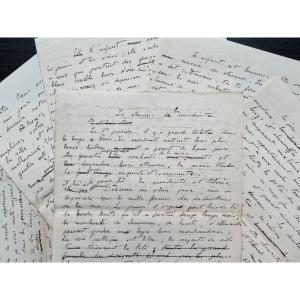





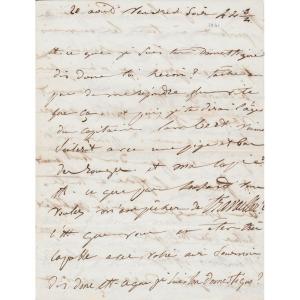

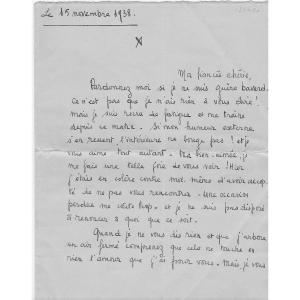






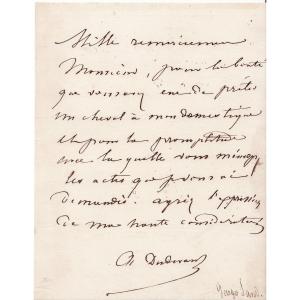



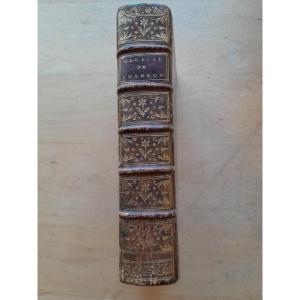

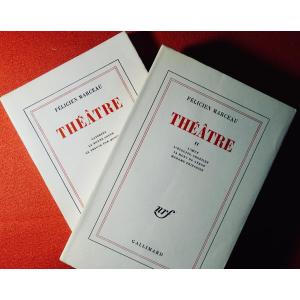



 Le Magazine de PROANTIC
Le Magazine de PROANTIC TRÉSORS Magazine
TRÉSORS Magazine Rivista Artiquariato
Rivista Artiquariato